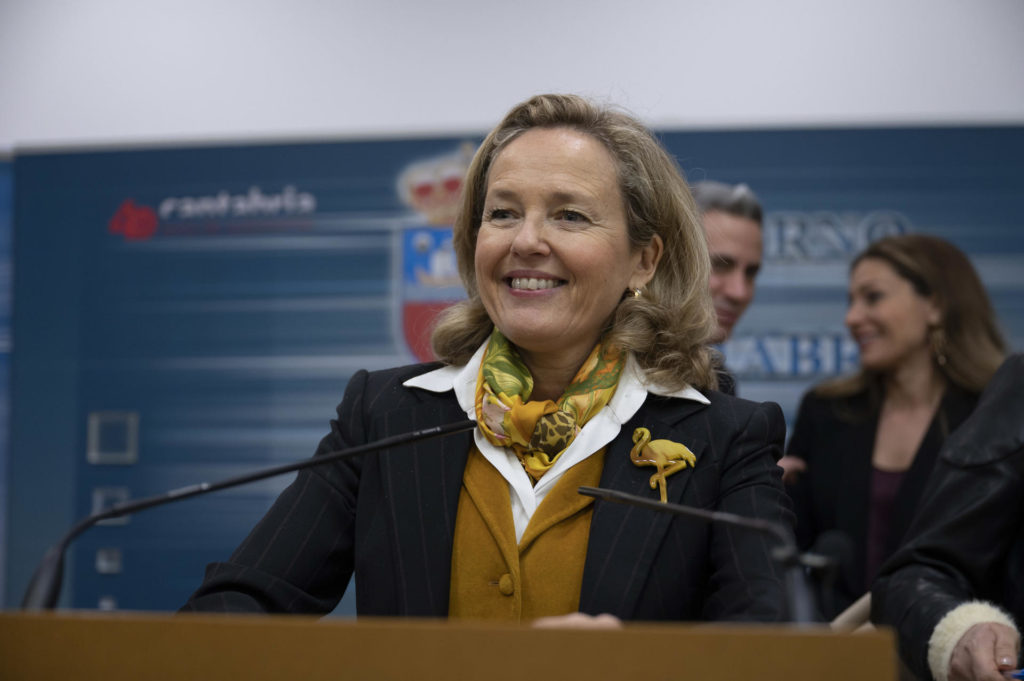 Have the article read by OpenAI (Beta). Please note that AI translations may take some time to process.
Have the article read by OpenAI (Beta). Please note that AI translations may take some time to process.Eisingen (dpa) – Thomas Rudel, CEO of the semiconductor distribution company Rutronik, thinks little of plans for expanding the chip industry in Europe. According to him, the money would eventually benefit foreign companies. Building up new companies was not worthwhile, Rudel said. “If you want to do it properly, you have to invest 8 to 10 billion euros.”
Machines were currently just as hard to come by in Germany as electrical engineers, he added. “And then you don’t have patents yet. And without patents, you can’t sell anything,” Rudel said.
In July, the European Parliament had approved the European Chips Act, which is to mobilise up to 43 billion euros for the chip industry. The investments are to come from the EU budget and the private sector, among others.
However, Europe has lost importance compared to the markets in Asia and America, Rudel said. In the past, market shares were roughly evenly distributed, he stated. “That has shifted.” Europe now accounts for only 9 to 10 percent of market share. According to Rudel, customers are also no longer investing heavily in Europe. “We are moving with our customers, whether we like it or not,” Rudel said.
We are moving with our customers, whether we like it or not.
Thomas Rudel, CEO of Rutronik
Rutronik is one of only a handful of semiconductor distributors in Germany. These companies act as distributors for the manufacturers, mainly for medium-sized companies. The company operates a large logistics centre near Pforzheim, Germany.
On Tuesday, the Taiwanese chip manufacturer TSMC had announced plans to build a semiconductor plant in the German city of Dresden by 2027. Subsidies worth billions are planned. Experts question, however, whether the local economy will get the hoped-for boost. (13 August)
European Public Prosecutor investigates Bulgaria over railway projects funds
Luxembourg/Sofia (BTA) – The European Public Prosecutor’s Office is investigating possible abuses in two EU-funded railway renewal projects in Bulgaria, worth more than 241 million euros.
The announcement by the prosecutor’s office headed by Laura Kövesi said searches had been carried out at the homes of the suspects and at the premises of the companies under investigation. Two people have been arrested. More than 100 police officers and agents of Bulgaria’s State Agency for National Security (SANS) took part in the raid. Addresses in the Bulgarian cities Sofia, Burgas, Varna, Stara Zagora, Smolyan and Pazardzhik were searched.
Two railway infrastructure modernisation projects are being investigated. The first is for the section between the towns Kostenets and Septemvri on the Sofia-Plovdiv line, worth over 130 million euros. The second is for the modernisation of the railway section between Orizovo and Mihailovo, part of the Plovdiv-Burgas line, a project worth over 111 million euros. The beneficiary of both projects is the Bulgarian National Railway Infrastructure Company (NKZI), and both contracts have been awarded to two private companies with international participation.
“I have ordered NKZI to fully cooperate with the prosecutor’s office and I hope it will go all the way in its investigation,” Transport Minister Georgi Gvozdeykov said.
So far, facts have been uncovered that could constitute criminal offences, including misuse of EU funds and money laundering, the European Public Prosecutor’s Office said. (11-12 August)

Nadia Calviño candidate to chair the European Investment Bank
Madrid/Cádiz/Ceuta (EFE) – The Spanish government is going to propose the First Vice-President and Acting Minister for Economic Affairs Nadia Calviño as a candidate to chair the European Investment Bank (EIB).
Calviño clarified that if elected she would take up her new post in January 2024 and that this does not interfere “at all” with her functions as First Vice-President of Spain. She said that with her candidacy, Spain was making “a strong bid” to become president of the financial institution for the first time in its history. The EIB has so far been led by seven men.
For its part, the conservative Partido Popular (PP) questioned Calviño’s candidacy and described it as “the last great lie” of the Prime Minister, socialist Pedro Sánchez, who has always defined the Vice-President as “his economic voice.” The PP also called it a “democratic anomaly” that Sánchez did not call its leader, Alberto Núñez Feijóo, to inform him of Calviño’s candidacy for the EIB. (11 and 12 August)
The European Commission supports Albania in the integration process in the field of agriculture
Tirana/Brussels (ATA) – The Albanian Ministry of Agriculture and Rural Development, in cooperation with the European Commission, continues to work on a screening process to harmonise local legislation with the EU acquis on sustainable agriculture and to bring it closer to European standards.
The Ministry of Agriculture said that explanatory meetings had been held in Brussels between the European Commission and the Ministry of Agriculture and Rural Development on July 17-18.
The focus of the meetings was to explain updated European Union legislation and coherent European policies on the Common Agricultural Policy (CAP), Common Market Organization (CMO), organic farming, state aid, direct payments, wine, market mechanisms, data collection, fisheries policies, aquaculture and marine spatial planning.
The European Commission has emphasised its support to the Albanian administration for capacity building and invited possible proposals for accelerated integration in bilateral meetings.
The Ministry of Agriculture and Rural Development has stressed that it will continue this process for the development of sustainable Albanian agriculture through meetings, followed by a session of the Subcommittee on Agriculture and Fisheries, which will take place in Brussels on 5 December 2023. (August 11)
This is a compilation of the European coverage of enr news agencies. It is published Tuesdays and Fridays. The content is an editorial selection based on news by the respective agency.
